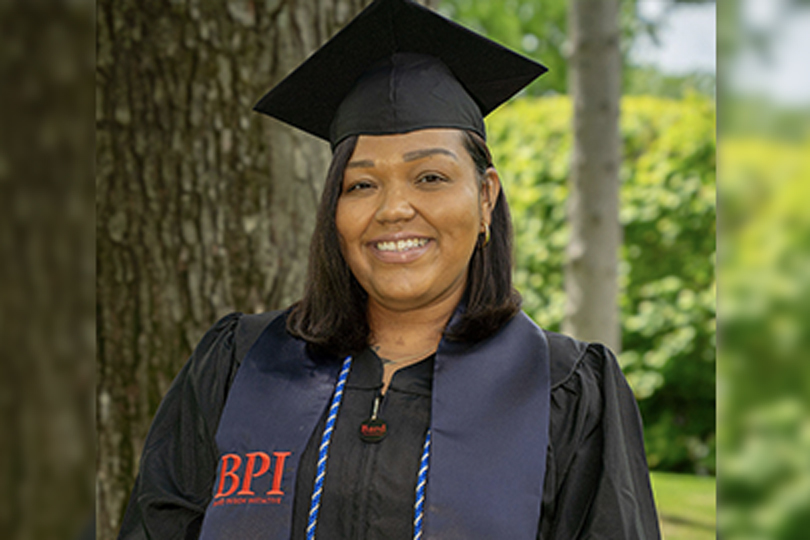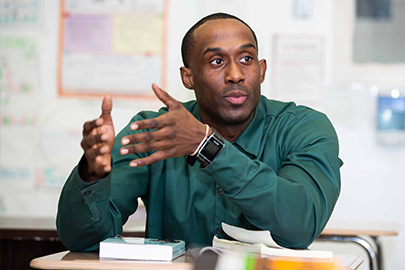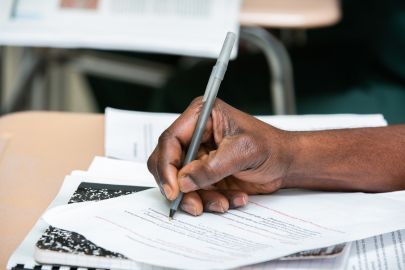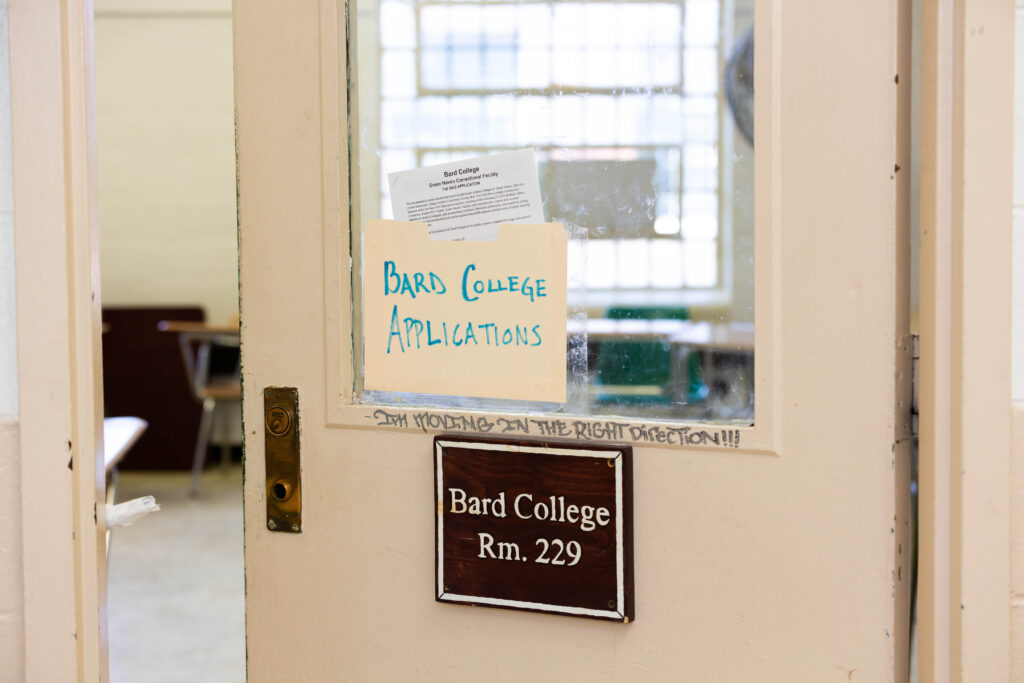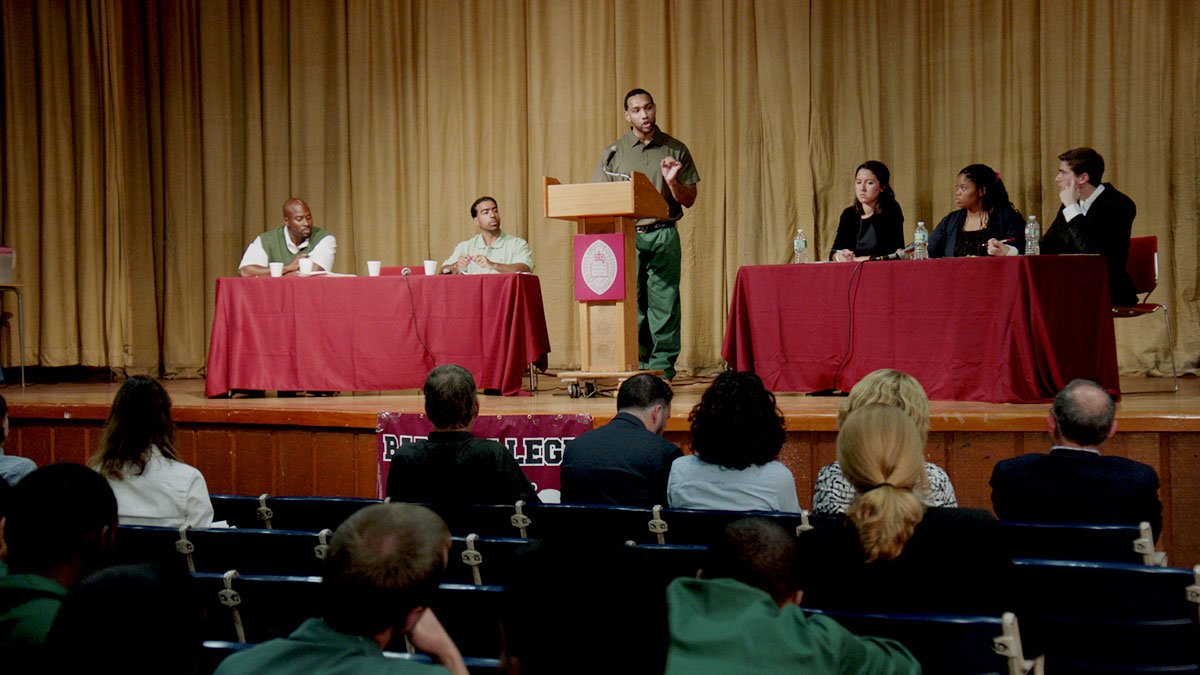
Bard Prison Initiative (BPI) Debate Union defeats Harvard University in September, 2015. (Members of the Bard Prison Initiative debate team defeat Harvard University. (Courtesy of Skiff Mountain Films)
When my day begins with my phone buzzing 10 times in a row, it’s usually a bad sign. This time was different. My friends were going wild because a follow-up story about our debate team’s 2016 victory against Harvard University was trending on Apple News. Ordinarily, an accomplishment like this one should be easy to share with people outside of this small group text. Of course I’m deeply proud of the times when my debate team beat Harvard, West Point and a slew of other big-name schools. But I have rarely shared these victories publicly.
The reason for my secrecy is that all of my debate wins, along with my entire college experience, happened in New York state prison. I was a student in the Bard Prison Initiative (BPI), which is the subject of the documentary film “College Behind Bars,” premiering on PBS on Monday. Since my release a year and a half ago, I have grappled with when and where it is okay to disclose my academic and personal accomplishments because so many of them happened while I was in a place that people have so many mistaken ideas about.
Yes, New York state prison was a place where I had some of my darkest moments but also where I had some of my brightest; it is where I cried my worst tears but also where I shared some of my best laughs. It is where I made some of my closest friends; where I got onstage and defeated a West Point debate team; earned a bachelor’s degree with a 3.84 grade-point average; and completed a 100-plus-page senior thesis about progressive education. It is a place that was my home for 13 years, a place that I had to make the best of and a place that gave me the drive to become who I am today.
Unlike people convicted of things such as marijuana possession, who most now agree deserve a second chance, I went to prison for a violent offense: I took another person’s life in a thoughtless act of anger. In many people’s eyes, I did not deserve the opportunities I had.
I have the deepest regrets about why I went to prison, regrets even deeper than most would understand, but I don’t have those same regrets about what I did with my time in prison. Those accomplishments are still things I want to be proud of.
Being part of an elite college-in-prison program fundamentally changed my life. It challenged me, it changed my ideas about who I am in the world, and it gave me the intellectual confidence to believe that I could accomplish anything I set my mind to. I have new things to be proud of since my release: an apartment, a fitness business and a role as a housing associate with BPI, where I work to connect our alumni who are returning home with transitional and permanent housing.
Despite my accomplishments, the cloud of my past, filled with the ifs and whens of disclosure, is still tough to shake. This is because it is based on views and ideas I can’t control.
“Remake yourself anew,” people have said to me. “The past is the past.” While these cliches sound good, the truth is that I don’t truly have that option. There comes a point when it is disingenuous not to disclose my time in prison. Incarceration is a fact of my past. So each time I am confronted with an opportunity to disclose some of my accomplishments, I am inundated by a simultaneous anxiety about doing so because of where they occurred and what people might think about whether I deserve the opportunities I received while incarcerated.
My discomfort is not baseless. As much conversation as we hear about things like banning the box and ending the effects of mass incarceration, the stigma of prison lingers.
Not everyone agrees that the past is the past. In July 2018, when the national unemployment rate was just 3.9 percent, a report from the Prison Policy Initiative found that the unemployment rate of formerly incarcerated people was 27 percent. People may like the idea of rehabilitation when they think of it as a way to keep themselves safe, but not when they have to be willing to suspend their biases and hire someone who has spent time in prison. This kind of blind stigma exists with employment, but I have experienced it with friends and even potential romantic partners as well.
But every day, I am more convinced that this cloud looms only because people like me don’t talk about the remarkable transformations we were able to make while in prison or what those transformations enable us to accomplish when we are released. It is our responsibility to show, prove and educate the public. As long as we stay silent, those clouds will hover over us. And I am ready to shake mine. Yes, my cloud may be a part of my story, but so is my walk into the sunshine.
Alexander Hall is a housing associate with the Bard Prison Initiative.
